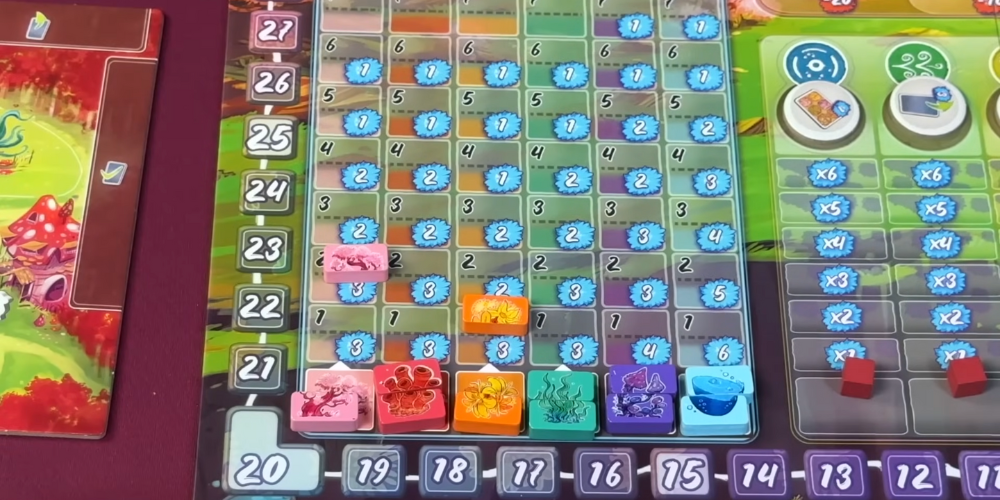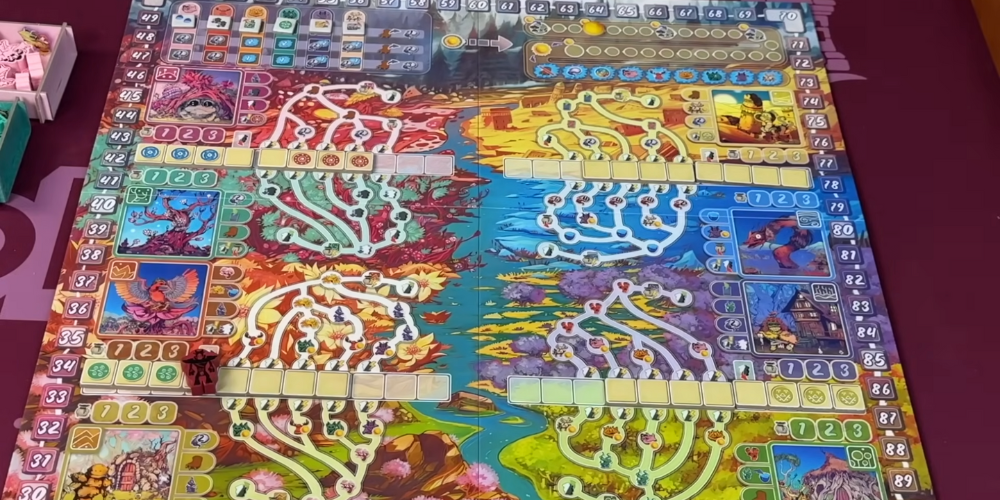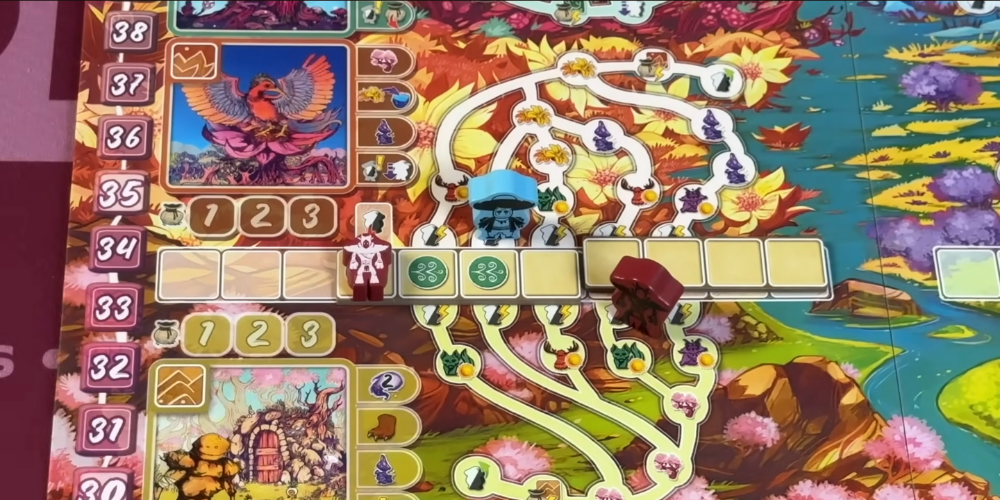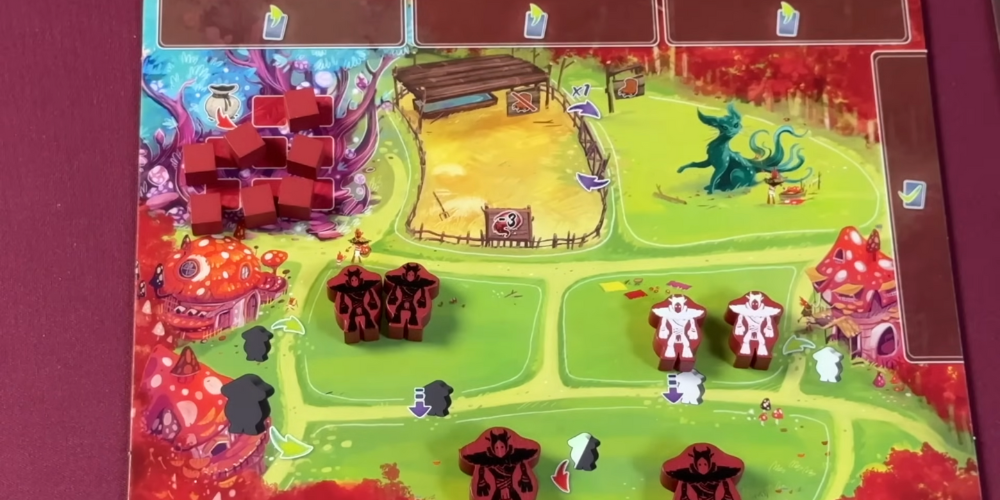Arborea: A Strategic Symphony of Shared Resources and Ecosystem Restoration
- 0

In a crowded market with abundant post-apocalyptic games, "Arborea" introduces a refreshing twist. Here, you play as a Patron Spirit guiding villagers to revitalize the broken ecosystems of a fantastical planet. The competition lies in seeing which tribe can best restore the landscape, providing a unique take on the genre that involves deep strategic gameplay and shared resources.
In Arborea, you control a Patron Spirit, represented by cheerful meeples, directing villagers to heal the landscape. This game fits into the worker placement category, a staple of strategic board gaming. Each player has a pool of workers to place on various board spaces, aiming to gather resources and perform actions that earn points. This core mechanic is familiar but with a unique twist. Players place their workers onto pilgrimage tracks that function like conveyor belts. On each turn, players can either put a worker on one of these tracks or push the conveyor tile forward, moving all workers on that track along with it.

Moving along the tracks often rewards players with biome resources. These tracks are split into two segments: upper and lower. When gaining resources, the upper marker is pushed up, and when spending them, it goes down. Unspent resources at the end of a turn move the lower marker up to meet the upper one, earning points for each space passed. This creates an interesting dynamic where future players can benefit from the resources you initially gained.
Resources are primarily used to play ecosystem cards, which lay out habitats containing six squares. These cards can be placed adjacent or atop each other, forming varied patterns. Creatures, acquired through trial actions, are placed at the intersections of four habitat squares, contributing significantly to your end-game score based on adjacent habitat spaces. Additional mechanics include the use of spirit resources to enable extra movements or actions and sages that provide benefits for gifting, linked to cards with specific icons.

There's also a seasonal track that players can advance by placing workers on tracks with associated icons. Each season has an objective, such as collecting spirit, and your position on this track multiplies points at the game's end. Understanding these interactions requires gameplay experience, although the rulebook helps explain the complex rules.
Arborea differentiates itself by focusing on shared mechanics in a genre typically involving insular player strategies. Here, each decision impacts others positively, advancing both your and other players' workers on the same track. Hoarding resources for points makes them available for others to use later, fostering a fascinating interplay of shared benefits. Players must balance immediate needs with potential advantages for others, creating a dynamic and engaging experience.
The gameplay itself involves constant juggling of priorities. Players strive to gather resources, animals, and cards to build and populate habitats. Each habitat is a puzzle that demands consideration of optimal terrain layouts and high-scoring creatures. Additionally, players must focus on side tasks, such as advancing on seasonal bonus tracks and ensuring workers return to their supply for future placement. The gifting mechanic with sages adds another layer, offering rewards that can significantly impact overall strategy.

Despite the intriguing mechanics, Arborea is not without its flaws. Its abstract nature can make it feel like a complex system for point manipulation rather than a thematic experience of landscape restoration. The game is also challenging to teach and takes several hours to play. The crowded board, filled with colors and icons, can be hard to navigate, and it requires substantial table space, especially as individual habitat cards spread during gameplay.
For enthusiasts of heavyweight strategy games, Arborea offers rewarding depth and interaction. Its unique mechanics and shared resource dynamics set it apart, providing substantial replay value with varying seasonal and animal track rewards. However, newcomers to the genre or those who prefer a more narrative-driven experience may find it too complex and visually overwhelming.
This review is based on extensive playtesting to understand Arborea's mechanics thoroughly. Detailed hands-on sessions allowed us to explore its systems and gauge its longevity. For more insights into our review process, check out our guide on testing board games and tabletop RPGs and our comprehensive reviews policy page. For additional suggestions, check out our handbooks on duo-player board games and the top-rated collaborative board games.
